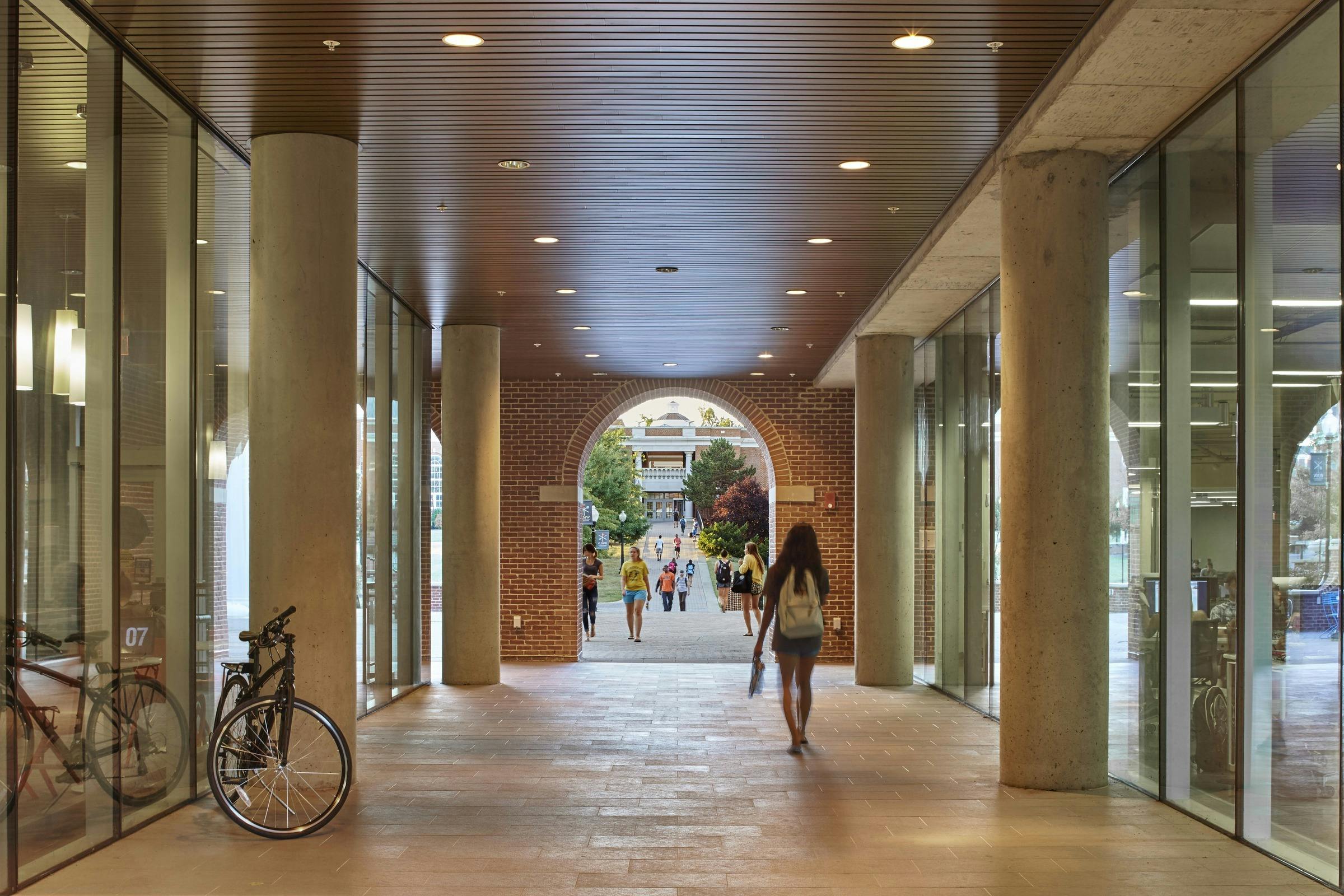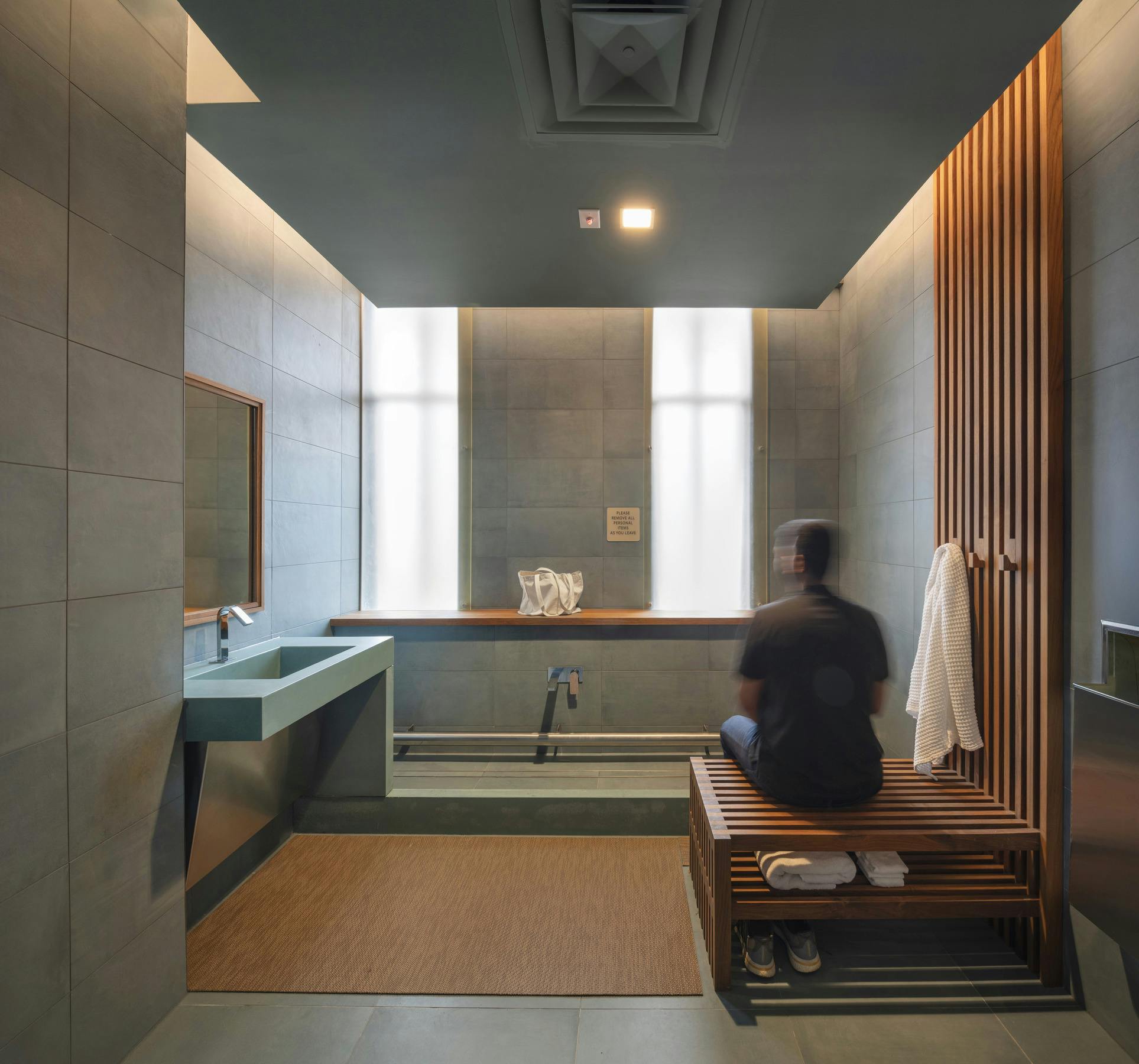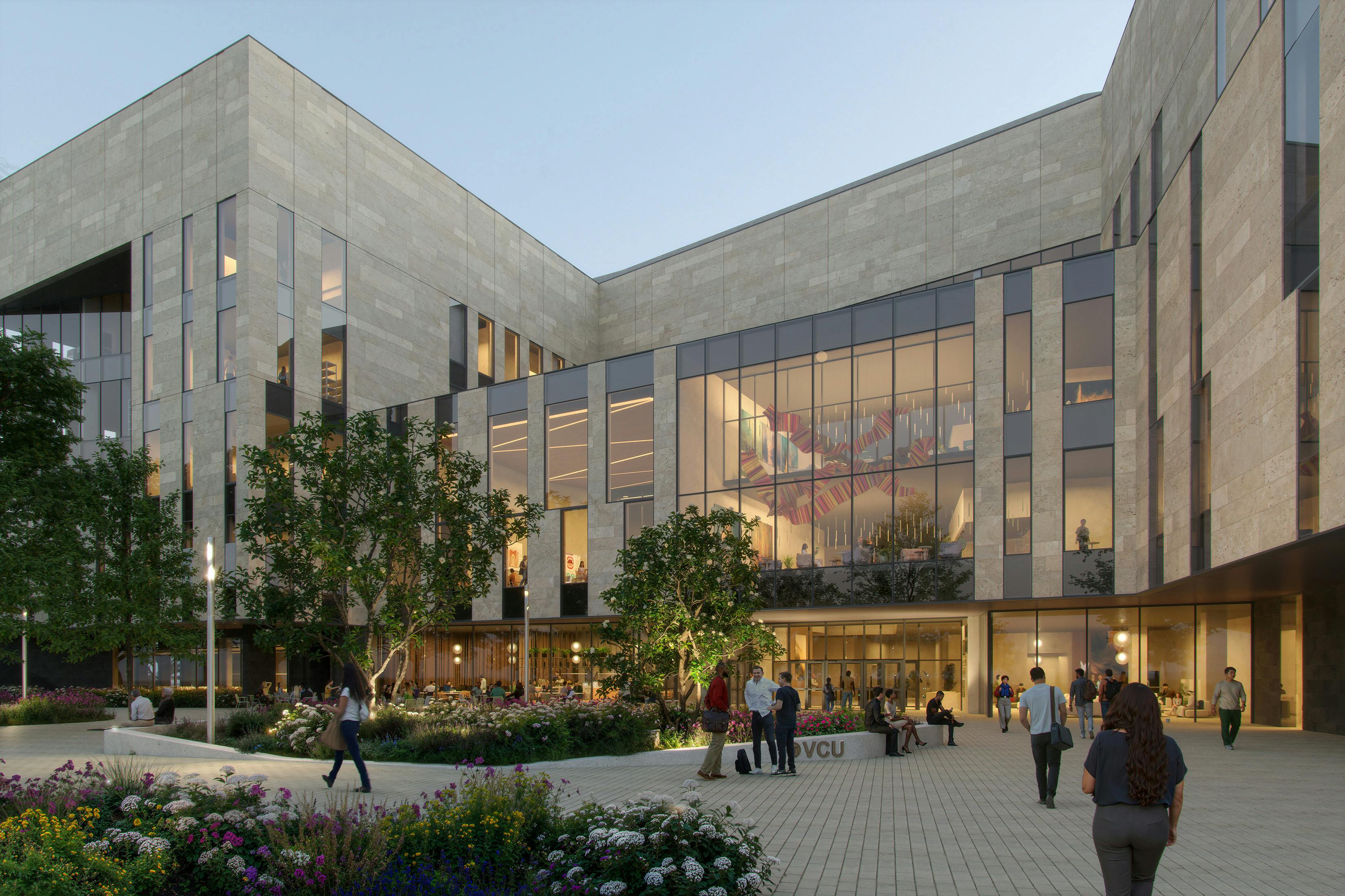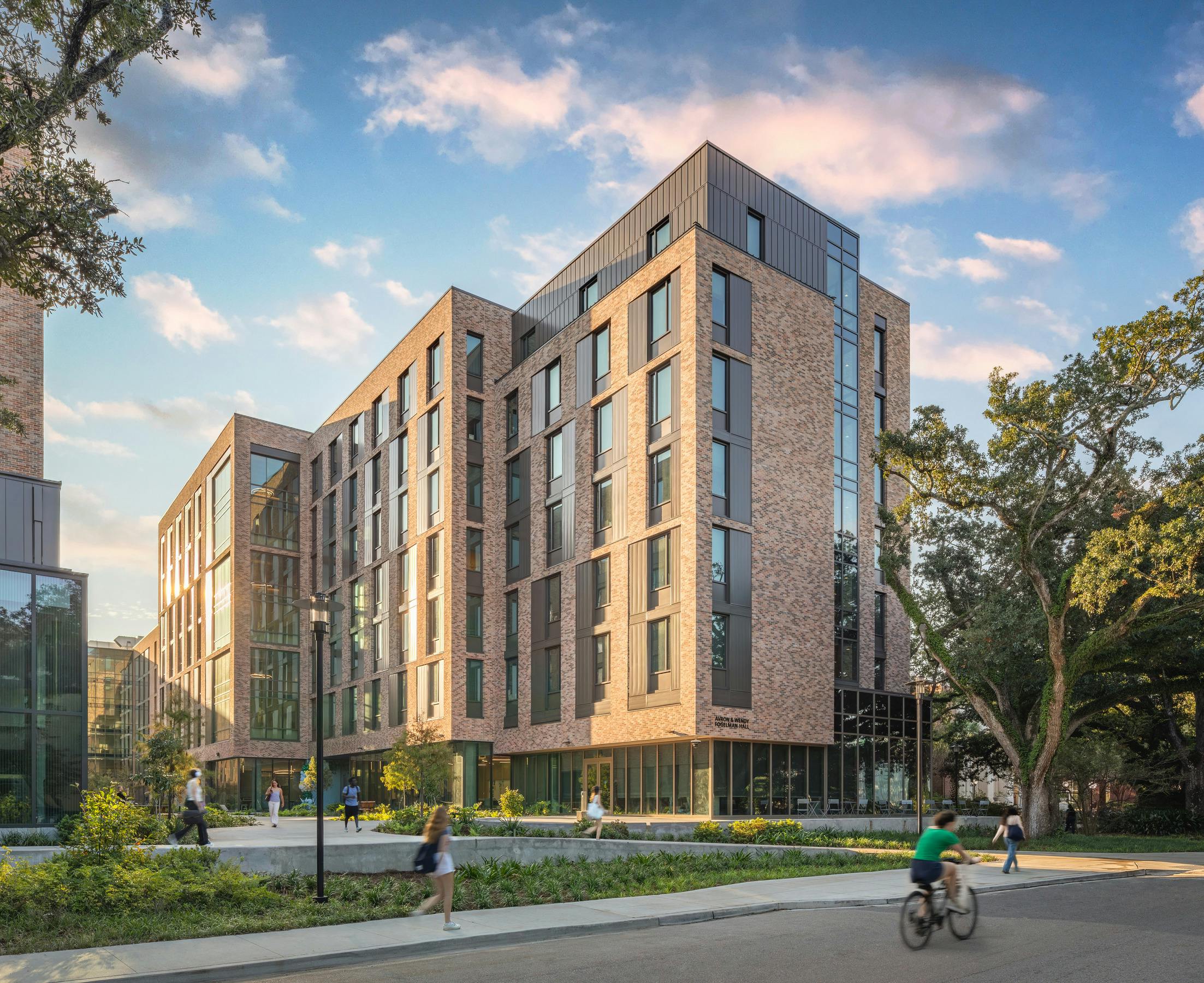



Hurley Convergence Center
At the University of Mary Washington, the Hurley Convergence Center merges heritage and high-tech, creating a vibrant hub of creativity, education and digital innovation.
Behind the classic Georgian façade of the Hurley Convergence Center at the University of Mary Washington lies a modern core of innovation and digital advancement. The multifaceted hub combines a creativity lab, a digital resource nexus, and a showcase for pedagogical practices and achievements. Central to its design is the facilitation of high quality, network-based resources, empowering students and faculty with spaces to engage, explore, and excel in technological advancements.


Positioned along the bustling Campus Walk, the center serves as a vital link to the Simpson Library while capturing the vibrancy of student life. It’s design cleverly utilizes of the site's challenging conditions, optimizing previously underutilized spaces while maintaining the campus's green areas. The Georgian exterior blends with the surroundings, while a distinctive glass "slice" hints at the modern facilities within, inviting natural light and promoting a sense of openness and curiosity among the various technological spaces.


The Hurley Center has rapidly become a nexus for student and faculty interaction, enhancing collaboration and remote engagement through advanced network access and media tools. Emphasizing flexibility, efficiency, and optimal space utilization, the design achieves a compact yet highly functional environment that minimizes both costs and carbon footprint.






Achieving LEED Silver certification, the center exemplifies sustainable practices through the use of recycled materials, efficient waste management, and the strategic employment of native plantings to enhance the campus ecology. These efforts, coupled with high-efficiency fixtures and a landscape design that negates the need for irrigation, further the University's commitment to environmental stewardship.




- Sector: Higher Education
- Scope: Architecture, Interior Design
- Fredericksburg, Virginia
- 2015
- 76,718 SF
- Photos courtesy of © Robert Benson Photography
- Interiors Citation, AIA Coastal Virginia, 2017








